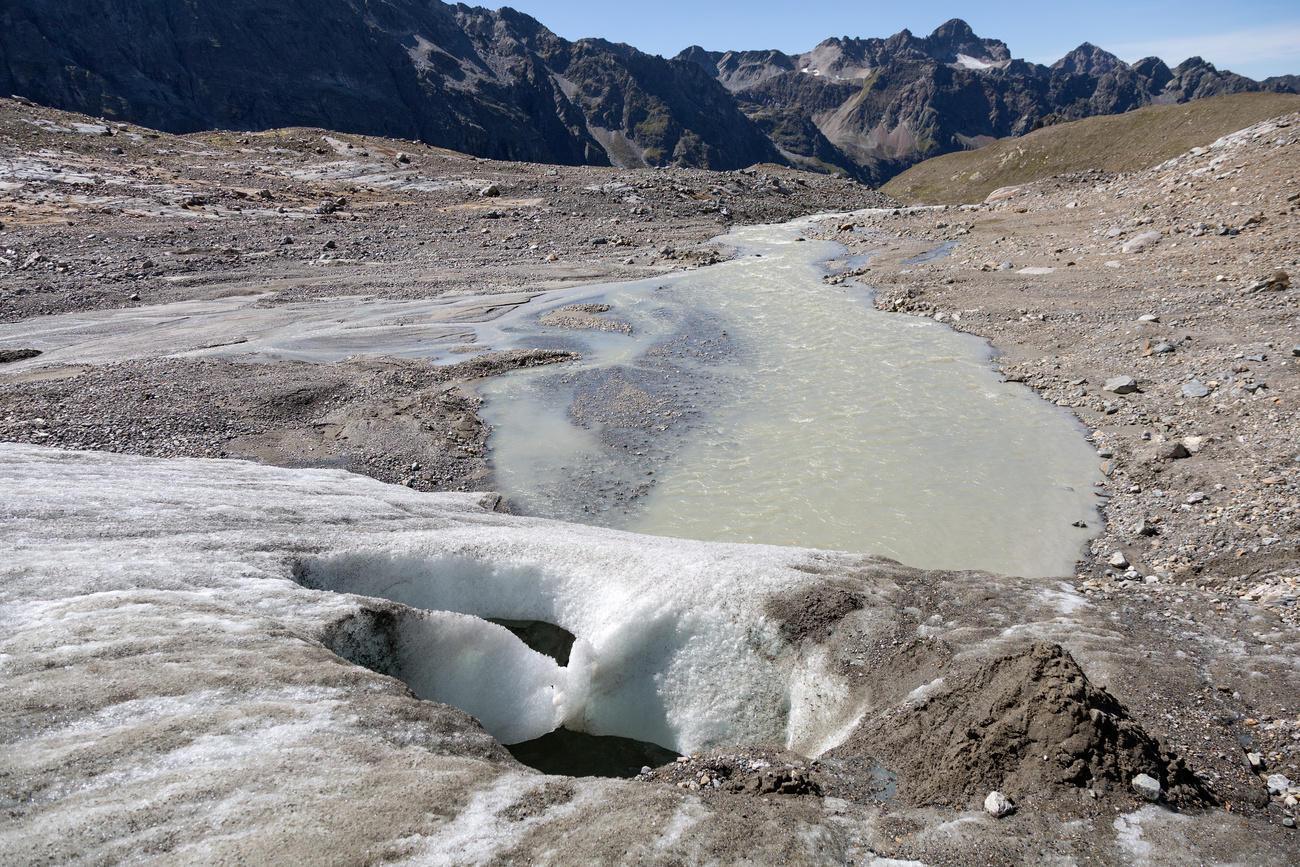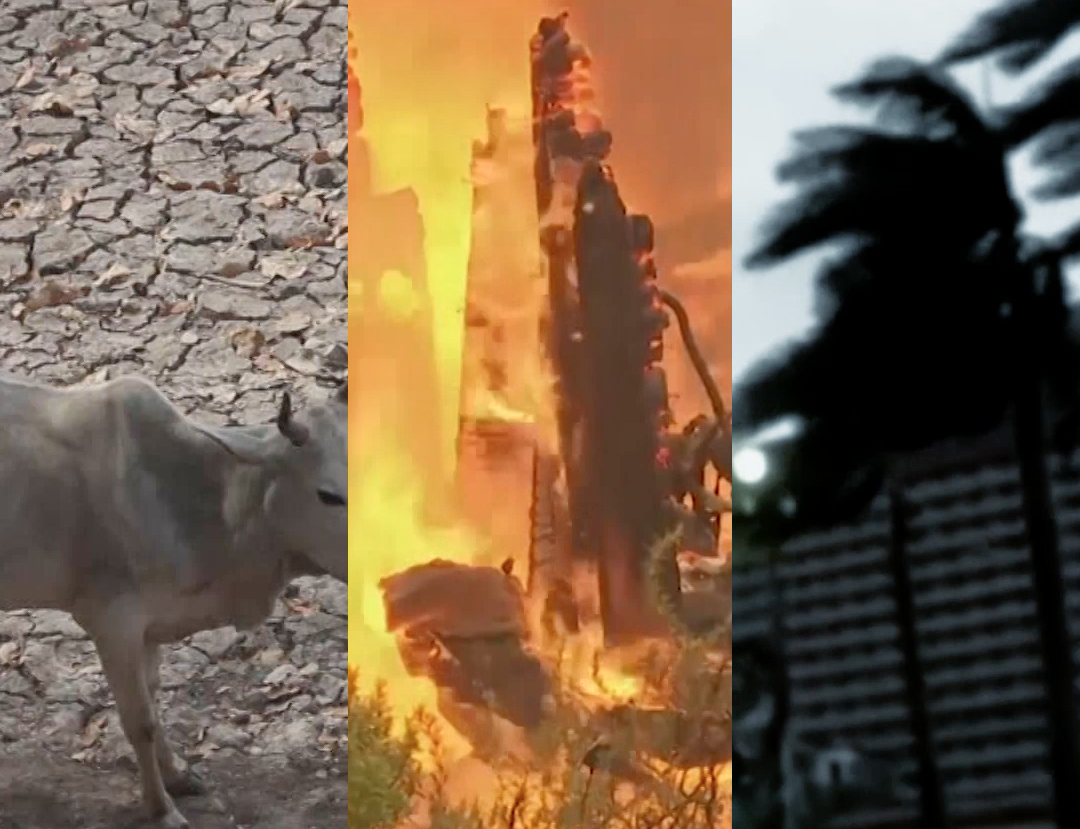
Climate warming is global and fast, say Swiss experts

Swiss scientists have discounted allegations that the current climate change is a recurring phenomenon in the history of mankind.
A team of researchers from the Swiss university of Bern gathered evidence showing that the previous periods of rising and dropping temperatures from the 14th to the 19th century were limited in space and not a global occurrence.
“It’s true that during the Little Ice Age it was generally colder across the whole world. But not everywhere at the same time,” says Raphael Neukom of the Oeschger centre for climate change researchExternal link.
The statement was published in a press release by Bern UniversityExternal link on Wednesday. It is based on two separate studies in the British science journal, NatureExternal link and in a supplementary publication, Nature Geoscience.
Faster than ever
“In contrast to pre-industrial climate fluctuations, current anthropological climate change is occurring across the whole world at the same time. In addition, the speed of global warming is higher than it has been in at least 2,000 years,” the university said in its release.
“Regional climates in pre-industrial times were primarily influenced by random fluctuations within the climate systems themselves. External factors such as volcanic eruptions or solar activity were not intense enough to cause markedly warm or cold temperatures across the whole world for decades, or even centuries,” according to the researchers.
In contrast, the two new studies show that the latest warming beginning in the 20th century has covered 98% of the Earth’s surface and is most likely the warmest period of the last 2,000 years.
“This shows – once again – that modern climate change cannot be explained by random fluctuations, but by anthropogenic emissions of CO2 and other greenhouse gases,” the scientists conclude.
The authors of the report say that the lowest temperatures during the Little Ice Age were recorded in the central and eastern Pacific regions in the 15th century. Later the cold shifted to north-western Europe and to the south-east on the North American continent.
The findings on the five pre-industrial climate periods are based on data from the international research consortium Past Global ChangesExternal link, which provides an overview of climate data from the last 2,000 years.
The consortium was set up by Swiss and United States institutions in 1991.

More
Climate sceptics’ arguments, debunked

In compliance with the JTI standards
More: SWI swissinfo.ch certified by the Journalism Trust Initiative





























You can find an overview of ongoing debates with our journalists here . Please join us!
If you want to start a conversation about a topic raised in this article or want to report factual errors, email us at english@swissinfo.ch.